
The 1896 Summer Olympics, officially known as the Games of the I Olympiad and commonly known as Athens 1896, were the first international Olympic Games held in modern history. Organised by the International Olympic Committee (IOC), which had been created by French aristocrat Pierre de Coubertin, the event was held in Athens, Greece, from 6 to 15 April 1896.
At the 1896 Summer Olympics, two tennis events were contested, both for men. They began on 8 April and continued on 9 April, 10 April, and 11 April. 13 or 15 competitors from six nations, including seven Greeks, took part in the tennis competition. Many of the doubles teams were of mixed nationality, including all three medalist pairs. None of the leading players of the time such as Wimbledon champion Harold Mahony, U.S champion Robert Wrenn, William Larned or Wilfred Baddeley participated. To strengthen the field, the organization added sportsmen from other Olympic events, including weightlifter Momčilo Tapavica, hammer thrower George S. Robertson and 800-metres runners Edwin Flack and Friedrich Traun.
The 1900 Summer Olympics were held in Paris, France, from May 14 to October 28, 1900, as part of the 1900 World's Fair.
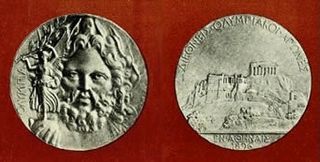
The 1896 Summer Olympics, officially known as the Games of the I Olympiad, were a summer multi-sport event held in Athens, the capital of Greece, from 6 to 15 April 1896, and were the first Olympic Games of the Modern era.

Australia has sent athletes to every Summer Olympic Games, as well as every Winter Olympics except 1924–32 and 1948. In 1908 and 1912 Australia competed with New Zealand under the name Australasia.

Australia competed at the 1896 Summer Olympics in Athens, Greece, from 6 to 15 April 1896. One athlete from Victoria, a British colony which later formed part of Australia, competed at the 1896 Summer Olympics in Athens, Greece. Edwin Flack was born in the United Kingdom and was resident in London in 1896, but spent most of his life in Australia and so is considered an Australian athlete by the International Olympic Committee.

Three athletes from Denmark competed in five sports at the 1896 Summer Olympics in Athens. Two of the three combined to win a gold medal, two silvers, and three bronzes, while Eugen Schmidt earned no medals. Viggo Jensen contributed one of each color, while Holger Nielsen earned the second silver and two bronzes. Shooting and weightlifting were Denmark's most successful sports. Denmark had 15 entries in 12 events, winning six medals.

Germany competed at the 1896 Summer Olympics in Athens, Greece. The Germans were the third most successful nation in terms of both gold medals and total medals (13). Gymnastics was the sport in which Germany excelled. The German team had 19 athletes. The Germans had 75 entries in 26 events, taking 13 medals.

Greece was the host nation of the 1896 Summer Olympics held in Athens. The number of Greek contestants is commonly cited as 169, but as many as 176 Greeks contested events in all nine sports. The Greeks were by far the most successful nation in terms of total medals with 47, 27 more than the United States of America. Nevertheless, their number of first-place finishes (10) was one fewer than the Americans' 11. The Greeks had 172 entries in 39 events. Only 4 events had no Greek entrants—the 400 metres and the high jump in athletics and the vault and the team horizontal bar in gymnastics.
Dimitrios written also as Demetrius Emmanuel (Greek: Δημήτριος Εμμανουήλ) Kasdaglis written also as Casdagli(s) (Greek: Κάσδαγλης), (10 October 1872 in Salford – 6 July 1931 in Bad Nauheim) was a Greek-Egyptian tennis player. He competed in the 1896 Summer Olympics in Athens and the 1906 Intercalated Games, also in Athens.

France was the host of the 1900 Summer Olympics in Paris. France was one of many nations that had competed in the 1896 Summer Olympics in Greece and had returned to compete at the 1900 Games.
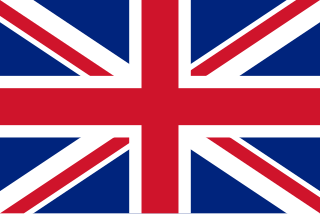
The United Kingdom of Great Britain and Ireland competed as Great Britain at the 1900 Summer Olympics in Paris, France. It was the second appearance of Britain after having participated in the inaugural 1896 Games. In Olympic competition, the nation has always shortened its official name to Great Britain rather than the United Kingdom seen elsewhere.

The United Kingdom has been represented at every modern Olympic Games. As of the 2020 Summer Olympics, it is is third in the all-time Summer Olympic medal table by both number of gold medals won and overall number of medals. London hosted the Summer Olympic Games in 1908, 1948 and 2012.

Greece has competed at every Summer Olympic Games, one of only five countries to have done so, and most of the Winter Olympic Games. Greece has hosted the modern Olympic Games twice, both in Athens for the Summer Olympic Games, in 1896 and 2004.

Athletes from Germany (GER) have appeared in 27 of the 30 Summer Olympic Games, having competed in all Games except those of 1920, 1924 and 1948, when they were not permitted to do so. Germany has hosted the Summer Olympic Games twice; the 1936 Games in Berlin, and the 1972 Games in Munich.
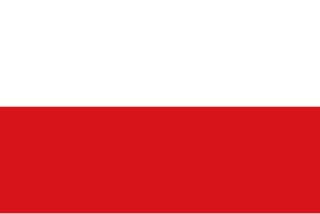
The Kingdom of Bohemia, an autonomous part of Austria-Hungary until 1918, competed at some of the early modern Olympic Games. The team made its debut at the 1900 Summer Olympics. After World War I, Bohemia became part of the new Czechoslovakia, and Bohemian athletes competed for Czechoslovakia at the Olympics. After the 1992 Summer Olympics and the dissolution of Czechoslovakia into the Czech Republic and Slovakia in 1993, Bohemian athletes competed for the Czech Republic at the Olympics. If these post-war appearances are counted, Bohemia has missed only three Olympics: the inaugural 1896 Summer Olympics, the 1904 Summer Olympics and as Czechoslovakia, the 1984 Summer Olympics which were boycotted by the USSR and its satellites.

Early modern Olympic Games allowed for individuals in a team to be from different nations. The International Olympic Committee (IOC) grouped their results together under the mixed team designation. A total of 25 medals were won by mixed teams in the first three modern Games, from 1896 to 1904.
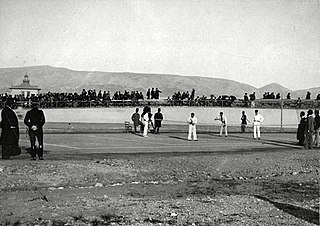
The men's doubles was one of two tennis events on the tennis at the 1896 Summer Olympics programme. The six pairs that entered were seeded into a single elimination tournament. Only five actually competed, hailing from four nations but entering as three Greek teams and a pair of mixed teams. It was the only event in the 1896 Summer Olympics that had mixed teams.
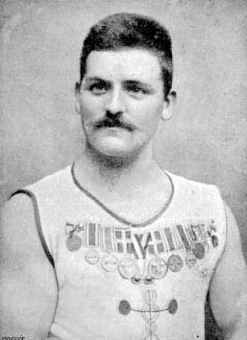
The men's two hand lift was one of two weightlifting events held as part of the Weightlifting at the 1896 Summer Olympics program. The two-handed lift was the first weightlifting event on 7 April. Six athletes took part. Viggo Jensen of Denmark and Launceston Elliot of the United Kingdom both lifted 111.5 kilograms, and the tie was broken by a determination by Prince George that Jensen had performed the lift with better form than had Elliot. A protest by the British delegation resulted in each athlete being given further attempts to improve their scores. Neither did, and the results stood as originally declared with Jensen taking the gold medal. Jensen had, however, suffered from the extra lifts in that he experienced a slight injury in trying to lift more than he was able.

Table tennis competition has been in the Summer Olympic Games since 1988, with singles and doubles events for men and women. Athletes from China have dominated the sport, winning a total of 60 medals in 37 events, including 32 out of a possible 37 gold medals, and only failing to win at least one medal in one event, the inaugural Men's Singles event at the 1988 Summer Olympics.

















